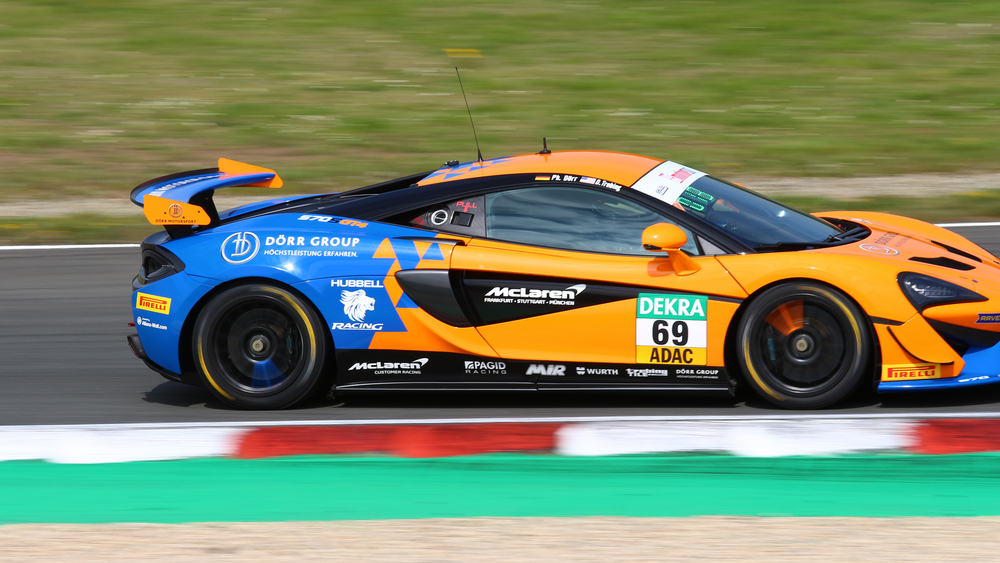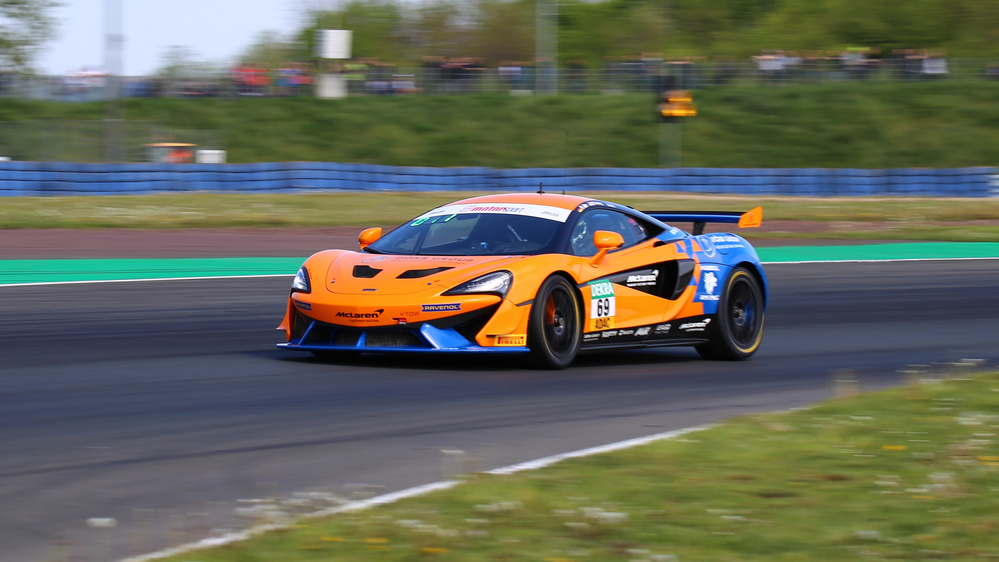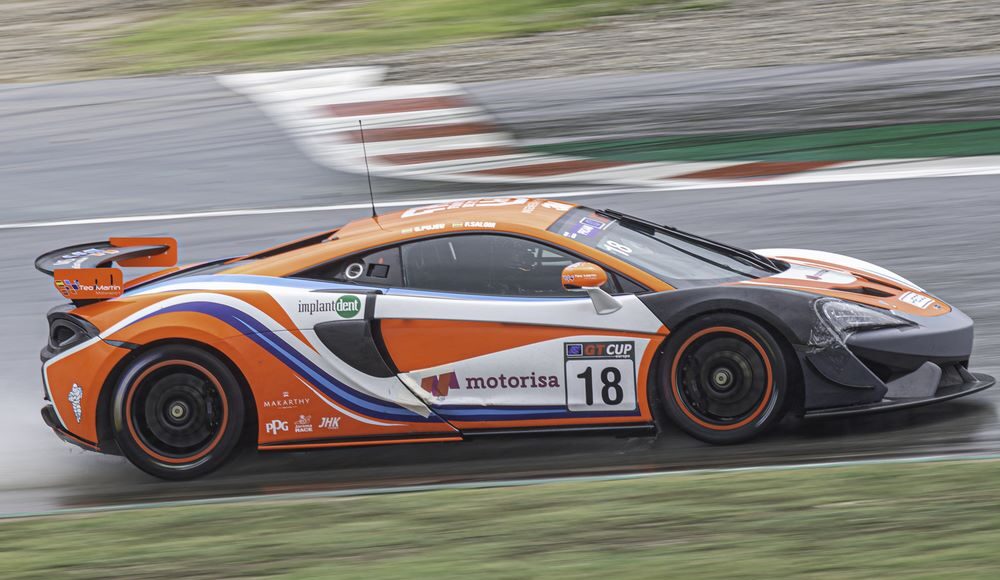McLaren Racing, renowned for its innovation in Formula 1 and beyond, is pushing the boundaries of technology once again. This time, the prestigious automaker has embarked on a groundbreaking initiative to integrate blockchain technology into its GT4 racing series. This move aims to elevate performance metrics but also to revolutionize the way data is managed and analyzed in professional motorsports.
McLaren’s Blockchain Integration Initiative
In a strategic partnership with Minima, McLaren has deployed blockchain technology to create the world’s first on-chain race data logger for its GT4 supercar fleet. This implementation at the Spa-Francorchamps circuit signifies a significant leap forward in the quest for real-time, secure, and immutable data collection in racing environments. By harnessing Minima’s L1 blockchain, McLaren ensures that every piece of race data—from lap times to engine diagnostics—is securely logged and readily accessible for analysis.
Benefits of Blockchain in Motorsports
The adoption of blockchain in motorsports brings forth multifaceted advantages. Firstly, it enhances data accuracy by eliminating the possibility of tampering or human error. This provides teams with precise insights into car performance and driver behavior. Secondly, blockchain’s decentralized nature ensures data transparency, allowing stakeholders and fans alike to access authenticated race statistics in real-time. Such transparency fosters trust and integrity within the racing community, reinforcing McLaren’s commitment to excellence.




Driving Innovation Beyond the Track
Beyond its immediate applications in racing, McLaren’s blockchain integration sets a precedent for technological innovation across industries. The robustness and security of blockchain technology can potentially extend to other high-performance sectors such as aerospace, healthcare, and finance, where data integrity and transparency are critical. This initiative underscores McLaren’s role as a pioneer in motorsports and as a catalyst for technological advancement on a global scale.
>>> Read more: 10 Unconventional Blockchain Uses You’d Be Surprised About
Future Prospects and Conclusion
Looking ahead, McLaren plans to expand its blockchain initiatives. They are exploring further applications that could reshape the future of racing and beyond. As blockchain continues to evolve, its integration into motorsports represents a pivotal moment in the intersection of technology and sports. By leveraging blockchain, McLaren not only enhances its racing performance but also drives innovation that transcends traditional boundaries.
McLaren adopting blockchain technology in its GT4 racing series marks a significant milestone in the world of motorsports. This strategic move elevates performance metrics and data security but also positions McLaren at the forefront of technological innovation in professional racing. As blockchain continues to prove its value across various industries, McLaren’s initiative serves as a testament to the transformative power of technology in enhancing competitiveness and transparency in sports.
Readers’ frequently asked questions
How exactly does blockchain technology improve performance in McLaren’s GT4 racing series?
Blockchain enhances performance by providing accurate and secure data logging. It ensures that all race data, including lap times and engine diagnostics, is recorded in a tamper-proof manner. That helps teams analyze and optimize car performance more effectively.
What are the potential implications of McLaren’s blockchain integration beyond motorsports?
McLaren integrating blockchain technology could influence other industries requiring secure and transparent data management, such as aerospace, healthcare, and finance. The technology’s ability to ensure data integrity and transparency has broader implications for enhancing efficiency and trust in various sectors beyond racing.
How does Minima’s L1 blockchain specifically contribute to McLaren’s data logging system?
Minima’s L1 blockchain provides the foundational technology for McLaren’s on-chain race data logger. It supports real-time data logging and authentication, ensuring that all recorded information remains immutable and accessible to stakeholders. This technological infrastructure is crucial in elevating data management standards in professional racing.
What Is In It For You? Action Items You Might Want to Consider
Stay Informed on Blockchain Innovations in Motorsports
Stay updated on advancements like McLaren’s integration of blockchain in their GT4 racing series. Such innovations can provide valuable insights into emerging trends and technologies that may impact performance metrics and data analytics in competitive environments. Follow updates from McLaren and similar initiatives to gauge potential opportunities for technological investments or partnerships.
Explore Blockchain-Related Investments
Consider diversifying your portfolio into blockchain-related technologies, particularly those disrupting traditional industries like motorsports. McLaren’s adoption of Minima’s L1 blockchain showcases the transformative potential of blockchain in enhancing data security and transparency. Look for investment opportunities in blockchain platforms or technologies that cater to high-performance sectors. They may offer significant growth prospects in the future.
Evaluate the Impact of Blockchain on Data-Driven Sports Technologies
Assess how blockchain can revolutionize data-driven technologies in sports beyond motorsports. McLaren’s initiative highlights the importance of secure, real-time data analytics in improving competitiveness and operational efficiencies. Evaluate how blockchain’s decentralized ledger capabilities could benefit other sports industries, such as analytics firms or sports tech startups focusing on data integrity and transparency.











[…] >>> Read more: McLaren Leverages Blockchain Technology […]